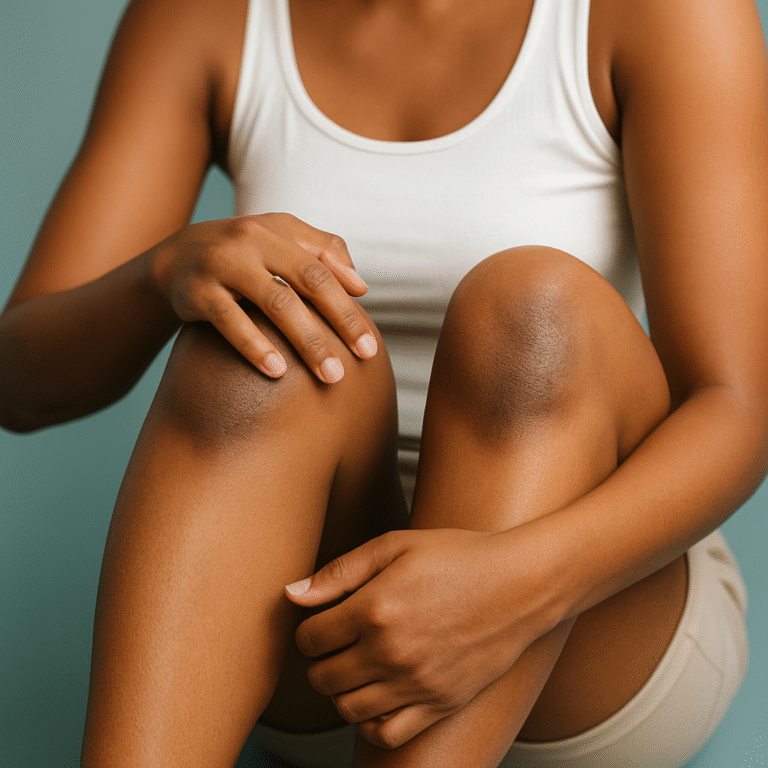How to Naturally Treat Hormonal Acne in Adult Women: A Complete Guide
Introduction
Hormonal acne can be a stubborn and distressing condition, particularly for adult women. Unlike teenage acne, which often fades with age, hormonal breakouts can persist—or even start—in your 30s, 40s, and beyond. These flare-ups are often tied to menstrual cycles, stress, perimenopause, or conditions like PCOS. Fortunately, there are natural and effective ways to treat hormonal acne without harsh medications.
In this guide, you’ll learn what causes hormonal acne, how to recognize it, and the most effective natural treatments—from dietary changes to topical remedies—that actually work.
What Is Hormonal Acne?
Hormonal acne is a type of acne triggered by fluctuations in your hormone levels—particularly androgens, such as testosterone. These hormones increase oil production, clog pores, and lead to inflammation.
It typically appears on the lower face, jawline, neck, and chin, and often worsens during ovulation or the luteal phase of the menstrual cycle.
Common Causes of Hormonal Acne:
- Menstrual cycle fluctuations
- PCOS (Polycystic Ovary Syndrome)
- Chronic stress
- Perimenopause or menopause
- Diets high in sugar or dairy
- Poor gut health
We also discuss similar skin issues related to diet in this article on dairy and acne.
Key Symptoms of Hormonal Acne
- Deep, cystic breakouts
- Painful pimples on jawline or chin
- Breakouts that recur monthly
- Acne that resists standard over-the-counter treatments
If these sound familiar, you may be dealing with hormonal acne—and it’s time to target it from the inside out.
1. Balance Hormones Naturally Through Diet
Your diet plays a critical role in balancing hormones. Cutting out inflammatory foods can dramatically reduce breakouts.
What to Avoid:
- Refined sugars and carbs
- Dairy products (especially skim milk)
- Soy-based foods (can disrupt estrogen)
- Excess caffeine and alcohol
What to Eat Instead:
- Leafy greens (rich in antioxidants)
- Omega-3 fats (salmon, flaxseeds, walnuts)
- Zinc-rich foods (pumpkin seeds, lentils)
- Probiotic-rich foods (yogurt alternatives, kimchi, kombucha)
We also cover anti-inflammatory diet plans for clearer skin here.
2. Herbal Supplements to Regulate Hormones
Certain herbs can help regulate hormone levels without the side effects of pharmaceuticals.
Top Herbal Remedies:
- Vitex (Chasteberry): Regulates progesterone and estrogen
- DIM (Diindolylmethane): Balances estrogen metabolism
- Spearmint tea: Reduces androgen levels
- Zinc supplements: Lowers inflammation and sebum production
Always consult a doctor before starting any supplement regimen.
3. Gentle, Hormone-Friendly Skincare Routine
Natural treatments should be paired with the right topical routine:
Morning:
- Cleanser: Sulfate-free, pH-balanced
- Serum: Niacinamide or green tea extract
- Moisturizer: Non-comedogenic and fragrance-free
- SPF: Mineral sunscreen (zinc oxide-based)
Evening:
- Double cleanse
- Clay mask (1–2x/week)
- Retinoid alternative: Bakuchiol
- Light moisturizer with aloe or squalane
We also explore natural skincare routines for sensitive skin types.
4. Manage Stress for Hormonal Balance
Chronic stress spikes cortisol, which can throw off your hormone levels.
Natural Ways to Lower Stress:
- Meditation or breathwork
- Gentle yoga
- Regular sleep (7–8 hours)
- Adaptogenic herbs like ashwagandha
Reducing stress is not optional—it’s essential in clearing hormonal acne.
5. Track Your Cycle & Symptoms
Use a menstrual tracking app to monitor when your breakouts occur. You’ll likely see a pattern: many women break out just before menstruation.
By spotting these trends, you can prepare your skin in advance and adjust your diet and skincare accordingly.
6. Heal the Gut-Skin Axis
Gut health and skin health are deeply connected. An imbalanced microbiome can drive inflammation and hormone imbalances.
Tips to Support Gut Health:
- Add fermented foods daily
- Take a high-quality probiotic
- Reduce sugar and processed foods
- Include fiber (chia seeds, oats, vegetables)
We also cover gut-skin connection and how to repair it.
Final Thoughts
Hormonal acne can feel impossible to treat, especially when you’ve tried every product without success. But with a holistic approach, it is possible to calm your skin, support your hormones, and restore confidence.
By combining diet, stress management, natural supplements, and smart skincare, you’ll begin to see meaningful improvement in your skin—often within 4–8 weeks.

